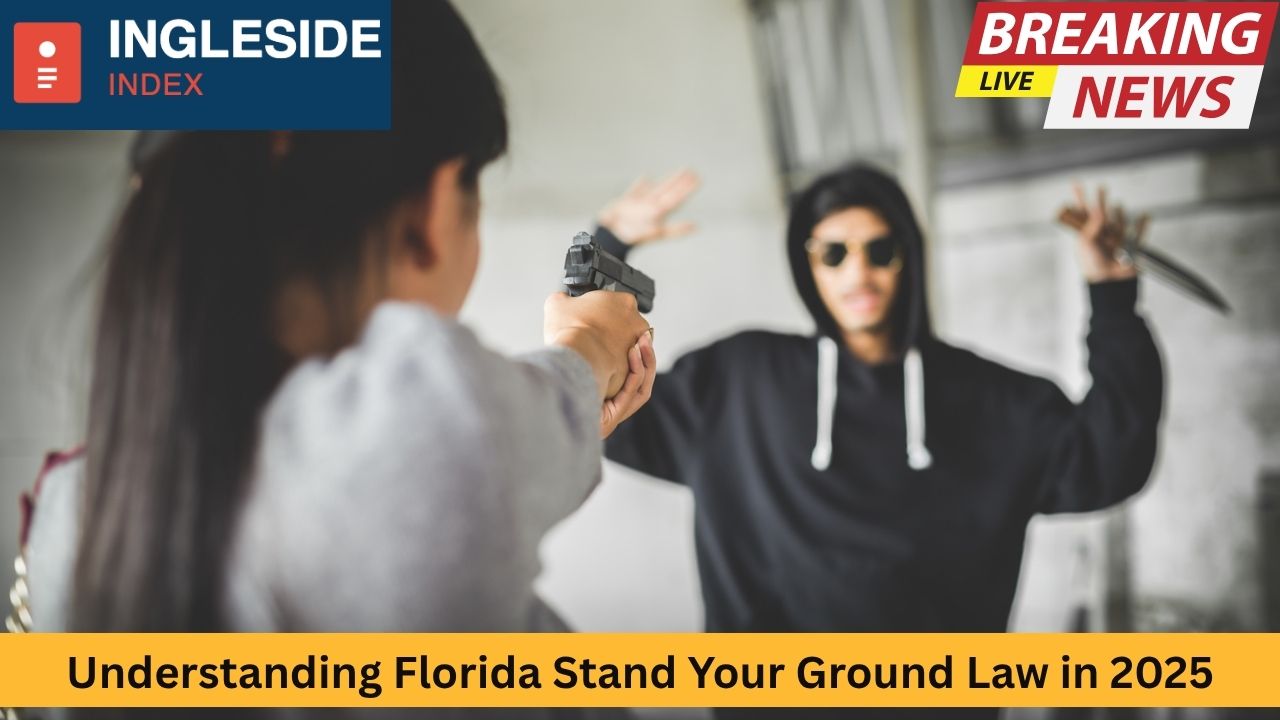In recent years, Florida’s Stand Your Ground law has been the subject of widespread debate across legal, political, and social spheres. As of 2025, the law continues to have a profound impact on criminal justice proceedings, especially self-defense cases involving deadly force. Florida was one of the first states to implement such a law in 2005, and its interpretation and application have evolved significantly in two decades. This article will explore the origins, current application, real-world case studies, criticisms, and legal nuances of the Stand Your Ground law in Florida, with up-to-date insights relevant for 2025.
Understanding the Foundation of the Law
Florida’s Stand Your Ground law allows individuals to use deadly force if they reasonably believe it is necessary to prevent imminent death or great bodily harm. Unlike traditional self-defense laws, which often require an individual to retreat if safely possible before resorting to deadly force, Stand Your Ground eliminates the duty to retreat, even if escape is an option.
This statute is codified under Florida Statutes Chapter 776, specifically 776.012 and 776.013. These sections outline when a person is justified in using force for self-defense in their home, vehicle, or any place they are legally permitted to be.
The Evolution of the Law Since 2005
Initially passed in 2005, the law received national attention after the 2012 shooting of Trayvon Martin in Sanford, Florida. The defendant in that case, George Zimmerman, claimed self-defense under the Stand Your Ground doctrine, igniting intense public scrutiny and political controversy.
Over time, legislative amendments have attempted to clarify the law’s scope. In 2017, Florida lawmakers shifted the burden of proof to prosecutors during pretrial immunity hearings, making it more difficult to challenge self-defense claims. By 2025, multiple legislative sessions have revisited the law, with recent updates focusing on transparency, data collection, and enhanced judicial oversight.
Where the Law Applies in Florida
The law is active statewide and applies equally across urban centers like Miami, Orlando, Tampa, and Jacksonville, as well as smaller towns such as Ocala, Gainesville, and Sebring. However, how local law enforcement and district attorneys interpret and apply the law can vary. For instance:
-
In Miami-Dade County, prosecutors often proceed cautiously with Stand Your Ground defenses, requiring rigorous scrutiny of surveillance footage and forensic evidence.
-
In Tallahassee, some defendants have successfully invoked Stand Your Ground in domestic violence and neighborhood dispute cases, sparking legal appeals and community debates.
Who Can Claim Stand Your Ground?
As of 2025, any individual—regardless of race, gender, or background—can claim Stand Your Ground so long as:
-
They are not engaged in illegal activity at the time.
-
They are in a place they are lawfully allowed to be.
-
They have a reasonable fear of imminent death or serious harm.
Importantly, the law does not require the person to try to flee or de-escalate the situation first.
The Legal Process of Asserting Stand Your Ground
When a defendant invokes Stand Your Ground, their attorney typically files a motion for pretrial immunity. A judge must then hold an evidentiary hearing to determine whether immunity from prosecution applies.
If granted immunity, the defendant is cleared without facing a jury trial. If immunity is denied, the defendant can still claim self-defense during trial, but the jury—not the judge—will decide its validity.
In 2025, Florida courts have continued to see a rise in pretrial immunity hearings. Data from early 2025 show that:
-
Approximately 42% of Stand Your Ground immunity claims result in dismissal before trial.
-
Roughly 35% proceed to trial but end in acquittal due to self-defense claims.
-
About 23% result in convictions, often because the court finds the use of force excessive or unjustified.
Notable Cases in Recent Years
Several Stand Your Ground cases in Florida have gained attention in the past few years:
-
In 2023, a woman in St. Petersburg was acquitted after shooting her estranged partner during a late-night break-in. The judge ruled her fear was reasonable under the circumstances.
-
In 2024, a bar brawl in Fort Lauderdale resulted in a controversial acquittal when one man fatally stabbed another, claiming self-defense during a chaotic fight. Surveillance footage played a key role in the verdict.
-
In 2025, a homeowner in Pensacola was denied immunity after shooting a neighbor over a property dispute, with the judge ruling that the threat was not imminent and non-lethal options were available.
Racial Disparities and Controversy
Critics of Stand Your Ground laws argue they disproportionately benefit certain groups over others. Numerous studies, including those conducted in Orlando and Tampa, have found that:
-
White defendants who kill Black victims are twice as likely to be acquitted compared to Black defendants who kill white victims.
-
Defendants in rural counties tend to receive more favorable outcomes than those in urban jurisdictions.
As of 2025, civil rights organizations continue to challenge the fairness of the law, urging for reforms to address racial bias and promote accountability.
Support for the Law
Supporters, including many in Florida’s gun rights advocacy community, argue that Stand Your Ground empowers law-abiding citizens to protect themselves and their families without fear of prosecution.
Groups such as the Florida Gun Owners Coalition and Second Amendment Liberty Network claim the law has helped deter violent crime. In Jacksonville, for instance, police reports from 2024 indicated a 12% drop in residential burglary attempts, which some attribute to strong self-defense protections.
Opposition and Reform Efforts
Opponents continue to push for changes, especially in the wake of highly publicized cases. Proposals in recent legislative sessions have included:
-
Reinstating the duty to retreat in public spaces.
-
Mandating independent investigations in all deadly force cases.
-
Requiring body camera footage to be released within 30 days of an incident.
While none of these reforms passed in full by early 2025, public pressure has led to incremental changes, particularly around transparency and data tracking of self-defense claims.
Impact on Law Enforcement
Law enforcement agencies in Tampa, Orlando, and Miami report that Stand Your Ground laws complicate investigations. Officers must determine at the scene whether force was legally justified—often without all the facts available.
Some departments now employ special Use-of-Force Review Units to handle such cases. In Broward County, a dedicated team of legal analysts, forensic specialists, and investigators work together to assess claims before charges are filed.
Community Reactions and Cultural Influence
Public opinion about Stand Your Ground remains split in 2025. Surveys conducted across cities like Gainesville, West Palm Beach, and Sarasota show that:
-
48% of Floridians support the law as it stands.
-
36% believe it should be reformed.
-
16% advocate for full repeal.
Meanwhile, the law has entered popular culture through films, documentaries, and legal dramas, further fueling national conversations about justice, race, and gun rights.
What Citizens Should Know in 2025
For residents of Florida, it is critical to understand the legal implications of the law:
-
Know your rights: If you carry a firearm or other weapon, be fully aware of when and how you are legally allowed to use force.
-
Understand proportionality: Deadly force is only permitted if there is a real and immediate threat.
-
Stay informed: Legal interpretations can change; local courts may issue rulings that affect how the law is applied in your area.
Organizations such as Florida Legal Aid, Neighborhood Justice Alliance, and Citizens for Accountability offer free workshops and legal resources in cities like Naples, Fort Myers, and Lakeland to help educate the public.
Conclusion
Florida’s Stand Your Ground law remains one of the most influential and controversial self-defense statutes in the United States. As of 2025, it continues to shape the outcomes of hundreds of cases each year, impacting individuals, communities, and the broader legal system.
While the law has defenders who value its emphasis on personal liberty and protection, critics remain deeply concerned about inconsistencies, racial disparities, and potential misuse. The future of Stand Your Ground in Florida will likely hinge on continued public dialogue, legislative updates, and the evolving landscape of justice reform.
Residents, legal professionals, and policymakers alike must remain vigilant and engaged to ensure that the law fulfills its intended purpose: protecting innocent lives without enabling unnecessary violence.




